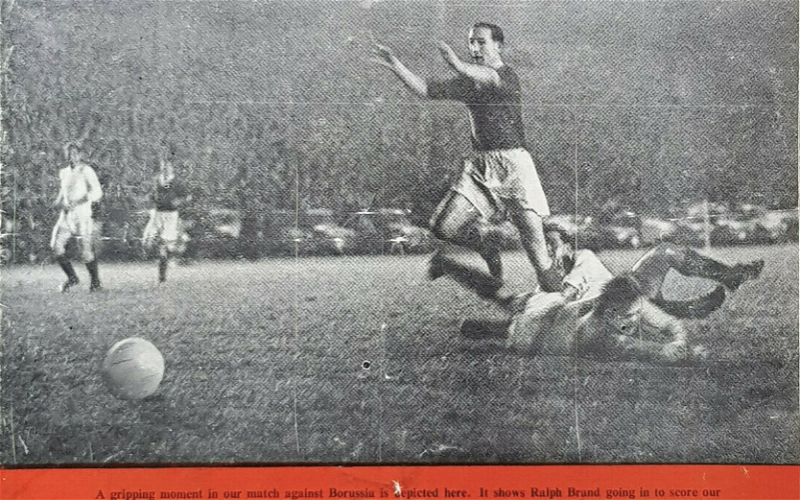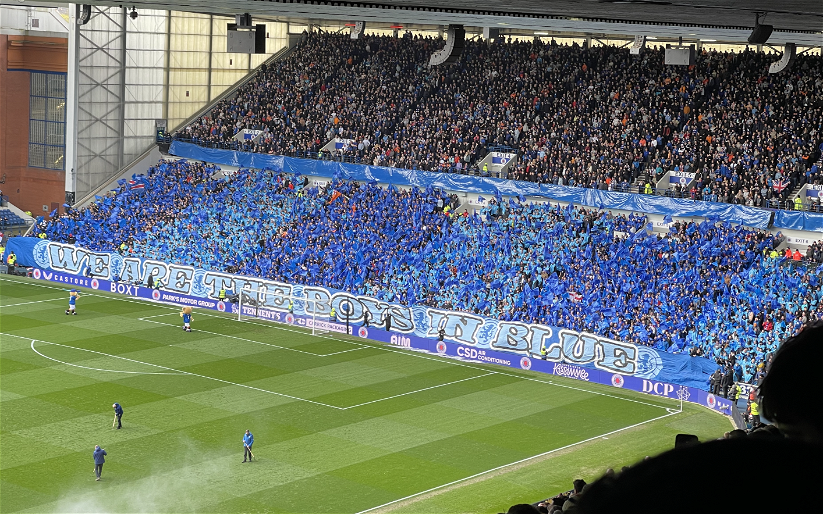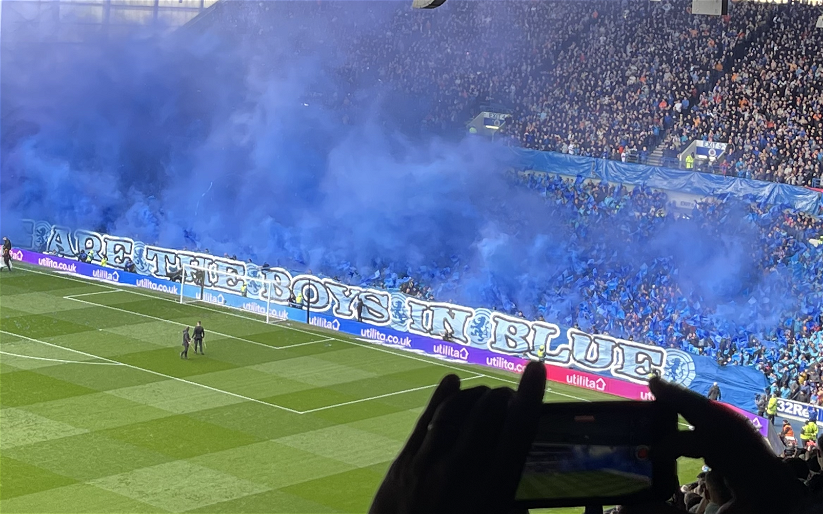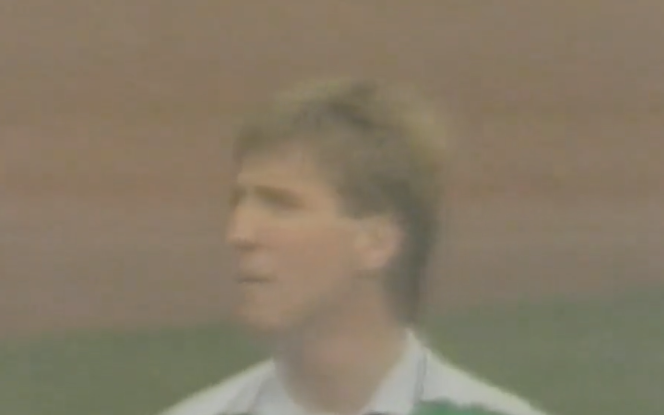By Alistair Aird
When Giovanni van Bronckhorst takes charge of Rangers in the Red Bull Arena on Thursday evening, he will join a select band of Rangers managers. Only four of his predecessors – Scot Symon, David White, Willie Waddell and Walter Smith – have led Rangers to the last four of a major European competition. Of that group only David White didn’t manage to take the next step into the Final, while Scot Symon achieved the feat twice and Messrs Waddell and Smith did it once.
Our opponents on Thursday, RB Leipzig, will become the eighth team that Rangers have faced at this stage of a major European tournament. The other seven teams are:
|
Season |
Competition |
Opponent |
|
1959/60 |
European Champions Cup |
Eintracht Frankfurt |
|
1960/61 |
European Cup Winners Cup |
Wolverhampton Wanderers |
|
1966/67 |
European Cup Winners Cup |
Slavia Sofia |
|
1968/69 |
Inter Cities Fairs Cup |
Newcastle United |
|
1971/72 |
European Cup Winners Cup |
Bayern Munich |
|
1992/93 |
European Champions League |
Olympique Marseille |
|
2007/08 |
UEFA Cup |
ACF Fiorentina |
Note that whilst not badged as a semi-final, the match against Marseille in the Stade Velodrome in 1993 should be classed as such as the winner of the match would have made the Final of the competition that season.
With that in mind, Rangers’ overall record in semi-final ties is:

Breaking this down into home and away, we get:
At Ibrox

Remarkably, the six goals conceded all came in one game, our first-ever European semi-final at Ibrox in 1960.
Away from Home

The 13 goals scored have been shared among nine players, but only one of them, Davie Wilson, has the distinction of scoring for the club at home and away in a European semi-final. Wilson achieved this by scoring against Eintracht Frankfurt at Ibrox in 1960 and Slavia Sofia in Bulgaria in 1961.
The first player to score for Rangers in a European semi-final was Eric Caldow. He netted a first-half penalty to draw Rangers level at 1-1 against Eintracht. The others on the list are Ian McMillan, Willie Henderson, Alex Scott, Ralph Brand, Sandy Jardine, Derek Parlane and Ian Durrant. A chap called Rainer Zobel also makes the list as he netted an own goal when we drew 1-1 with Bayern Munich en-route to Barcelona in 1972.
Let’s now look at each of the ties in some more detail:
Season 1959/60 Eintracht Frankfurt
If results go a certain way over the next week or so, Rangers could be set for a reunion with Eintracht Frankfurt, 62 years after we first met them in European competition. One must hope if that transpires then the result this time is somewhat less humiliating.
In addition to making it through to the club’s first-ever European final, there was further incentive for the class of 59/60 when they travelled to Frankfurt for the first leg of the semi-final. The venue for the Final was to be Hampden Park, almost a second home for Rangers given the number of Cup semi-finals and finals they had contested there over the years. Indeed, the last match Rangers played before travelling to Frankfurt for the first leg was a Scottish Cup semi-final replay win over Celtic, doubles from Wilson and Millar earning Scot Symon’s side a 4-1 victory. However, by the time the tie with Eintracht was over it would be ‘humbled’ not ‘Hampden’ that would be the word on the Rangers supporters’ lips.
The first leg took place on 13 April 1960. The Rangers starting XI showed two changes from the side that defeated Celtic. With Harold Davis injured, Sammy Baird moved from inside-left to right-half, his number 10 shirt being taken by Jimmy Millar. Millar centre forward position went to Max Murray and there was a return in goal for George Niven. And Niven, who was vying with Billy Ritchie for the gloves, had a busy night in the Weld Stadium.
Rangers could have been behind after only eight minutes. John Little, playing at left-back, fouled outside right Richard Kress in the box and the referee awarded the home side a penalty. Kress was affectionately described as ‘portly’ in the Evening Times, but the reporter was quick to say that while Kress appeared as if ‘he could not catch a bus leaving a stop in first gear’, he was ‘just about the next fastest thing to light’. However, even the reporter was perplexed when a penalty was awarded, claiming that Kress took a dive that was in ‘the Henry Irving class’ [NB. Henry Irving was a Victorian actor]
Justice was done when Kress fired wide from the spot, but his side hit the front before the half hour mark. The goal was scored Dieter Stinka – his shot into the roof of the net in the unstoppable category – but Rangers went in on level terms at the break. Ian McMillan was fouled and, on this occasion, the Swedish referee gave a penalty to Rangers. Eric Caldow fired the spot kick into the net and parity was restored.
It was at that stage, however, that tactical naivety crept in. The message at the interval should have been to sit tight and spring a counterattack or two after the break. Instead, Rangers got blitzed. In the midst of second half onslaught, Symon’s side fell apart, conceding five goals to a side that the Glasgow Herald hailed as being ‘faster than Rangers, quicker to the tackle [while] passing with greater precision’. Eintracht’s captain, Alfred Pfaff, who had won the World Cup with West Germany in 1954, scored twice, the other goals coming inside the last 16 minutes from Dieter Lindner (2) and Erwin Stein. The latter was a magnificent solo effort that involved a run of some 40 yards with the ball.
The tie was done and dusted, yet a crowd of 70,000 graced the slopes of Ibrox Park for the second leg. Ironically, the date for Ibrox’s first semi-final was 5 May, the same date we will welcome RB Leipzig to Ibrox. The fans probably arrived more in hope than expectation, and John Rafferty, writing in the Glasgow Herald, summed the match up perfectly in his opening paragraph, stating that Rangers were ‘not in the same class as Eintracht of Frankfurt.’ The West German champions scored another six goals, with all Rangers could muster in response being a double from Ian McMillan and a backheeled effort from Davie Wilson.
It was a chastening experience for Rangers, but their opponents suffered a similar one the next time they came to Glasgow. In one of the greatest-ever European Cup Finals, Ferenc Puskas scored four goals and Alfredo di Stefano scored a hat-trick as Real Madrid won 7-3. What Los Blancos would have done to Rangers doesn’t bear thinking about!
Season 1960/61 Wolverhampton Wanderers
One of the songs that is still sung with great lustre at Ibrox is ‘When the Rangers Came to Wolverhampton Town’, and the lyrics were inspired by a journey to the Midlands that sealed our passage into a first-ever European Final.
Rangers were drawn against the English FA Cup holders in the last four of the inaugural European Cup Winners Cup competition. Wolves were a formidable side at that time. In addition to defeating Blackburn Rovers 3-0 to win the FA Cup, they had gone toe-to-toe with Burnley and Tottenham Hotspur for the Division One title in season 1959/60. Stan Cullis’s side had won the previous two league titles, but defeat to the latter on the penultimate weekend of the season would ultimately prove costly in their quest for three-in-a-row, Burnley taking the title by a solitary point.
As if the challenge that Wolves would present wasn’t daunting enough, Rangers went into the first leg at Ibrox shorn of several first-choice players. Ian McMillan and Jimmy Millar were ruled out, as was Millar’s regular understudy, Max Murray. That meant changes to the outfield 10 for the first time in that European campaign.
Symon’s solution at centre forward was to hand the number nine shirt to centre-half Doug Baillie, and with Davie Wilson taking over from McMillan at inside-right, Bobby Hume was drafted in on the left wing. But matters seemed to be getting even worse for Rangers in the early exchanges. Only ten minutes had elapsed when the rugged and redoubtable right-half, Harold Davis, picked up an injury. There were no substitutes back then, so Davis was shunted out to the right wing. That meant a reshuffle that saw Wilson move to right-half and Alex Scott take over at inside-right.
But those setbacks didn’t deter a Rangers side that Gair Henderson of the Evening Times hailed as ‘lionhearts’. After 35 minutes, they were ahead. Wilson’s ball forward was misjudged by Ron Flowers, and Scott pounced on the loose ball, advanced to the edge of the penalty area then thumped a shot beyond Wolves’ Scottish goalkeeper, Malcolm Finlayson. A late goal from Ralph Brand doubled Rangers’ lead ahead of the trip to Molineux for the second leg.
Despite their lead, the second leg was still viewed with trepidation. McMillan was back in the number eight jersey for this one, with Alex Scott playing at centre forward. Hume kept his place, and the versatile Wilson played at outside-right.
Heavy rain and a slippery pitch greeted the players as they emerged for kick off, and Rangers had to show resolve in the opening gambit as Wolves prowled around their penalty area, looking to pounce. But they were kept at arm’s length, and it was in fact Rangers that led at the interval, Alex Scott scoring after 43 minutes to make it 3-0 on aggregate.
That three-goal advantage was preserved by a splendid save from Billy Ritchie, and although Peter Broadbent finally got Wolves on the scoreboard after 65 minutes, Rangers held out, playing in the opinion of Cyril Horne ‘confident, attractive football’.
Rangers had thus carved another niche in the history books as they became the first British club to qualify for a European Final. And they had restored national pride that had been battered and bruised when England annihilated Scotland 9-3 at Wembley just four days prior to the match.
Gair Henderson of the Evening Times referred to the display in the ‘mud of Molineux’ as ‘one of the greatest ever given by a Rangers team’, and he was also fulsome in his praise of the Rangers supporters, saying that as they paraded through the city it was reminiscent of ‘Glasgow on Hogmanay and VE Day.’ Henderson also singled out Wilson, McMillan, Davis and Shearer for their respective endeavours. He opined that ‘never has Wilson played a better game for Rangers’, while McMillan was in ‘a cunning and brilliant mood’. In the rear-guard, Shearer ‘tackled like a tiger’, while it was the ‘strength and height’ of Davis that ‘saved Rangers time and again.’
The Final against ACF Fiorentina was a two-legged affair, the Italians winning 2-0 at Ibrox and 2-1 in Florence.
Season 1966/67 Slavia Sofia
It would be six years before Rangers next graced the semi-final of a European tournament. With Scot Symon still at the helm, they made it through to face the Bulgarian side Slavia Sofia in season 1966/67.
The first leg took place in the Bulgarian capital on 19 April 1967. And Rangers arrived having still not quite shaken off the hangover of one of the darkest days in their history, 28 January, when they were eliminated from the Scottish Cup by Berwick Rangers.
The proverbial axe was subsequently wielded, and there would be no place in the XI in Sofia for the prolific pairing of Jim Forrest and George McLean. Both had been controversially demoted to the reserves after Berwick, and as a result, Alex Smith was handed the number nine jersey in Bulgaria. There was logic in that call as Smith would end the season with 23 goals to his name, but the record signing from Dunfermline Athletic wasn’t the predator that Forrest was. McLean’s place at inside-right went to Forrest’s cousin, Alex Willoughby, but he too would be out of favour by the time the second leg came around.
The playing surface in Sofia was highlighted as an issue. John Greig stated at the time that it was ‘the worst on which I have ever played’, while Peter Hendry of the Evening Times said that ‘a drying wind had left pitch almost bone hard’ before concluding that any grassy areas were of ‘Beatle length and only helped to hide the ruts.’
But Rangers mastered the surface and emerged with a 1-0 win courtesy of a goal after 32 minutes from Davie Wilson. This would be the wee man’s last season as a Rangers player as he had lost his place to Willie Johnston. But since Bud had broken his leg in Berwick, the effervescent Wilson was back in favour, and he described his goal by saying ‘one of the most beautiful sights I have ever seen was the ball hitting back of the net.’
Rangers completed the job at Ibrox – a solitary goal from Willie Henderson was sufficient on that occasion – but they lost 1-0 against Bayern Munich in the Final in Nuremburg. Roger Hynd, ostensibly a half-back, played at centre forward, as once again that bleakest of days in Berwick and the subsequent jettisoning of forward players came back to haunt the Rangers hierarchy.
Season 1968/69 Newcastle United
Rangers had made their debut appearance in the Inter-Cities Fairs Cup the previous season, losing out to Don Revie’s Leeds United in the last eight. A year later under the guidance of Davie White who had succeeded Scot Symon in November 1967, they went one better, and once again it would be one of the top teams in England that stood in Rangers’ way, European debutants Newcastle United.
The first leg was at Ibrox on 14 May 1969. Rangers were without Willie Johnston through suspension – Bud had been ordered off in the previous round against Athletic Bilbao – which meant that the forward line included Andy Penman and Sandy Jardine. But Johnston’s absence didn’t hamper Rangers, and they were left to rue the passing up of several goalscoring opportunities as the match ended in stalemate.
The ’Special Correspondent’ reporting for the Glasgow Herald stated that chances were passed up due to ‘indecision within shooting distance’, going on to say that ‘much of the finishing was half-hearted and there were occasions when the home forwards became muddled up when the goal appeared to be at their mercy.’
Penman was the chief sinner in front of goal – his penalty kick being saved by Willie McFaul after 34 minutes – but Willie Henderson also spurned an opening when he couldn’t beat McFaul in a one-on-one situation. Nonetheless, Rangers were still in the tie when they travelled to St James’s Park the following week. Unfortunately, the second leg was marred by crowd trouble that besmirched the name of the football club.
On the pitch, White made three changes to the team that had played at Ibrox. As expected, Johnston came back from suspension at the expense of Jardine, while Willie Mathieson replaced Davie Provan at left back. There was a switch at centre back too, Ronnie McKinnon taking over from Colin Jackson.
The deadlock still hadn’t been broken at half time, but eight minutes after the restart a Scot with a Rangers connection edged the home side ahead. Jim Scott, brother of the former Rangers winger Alex, fired the ball beyond Gerry Neef, and it was another Scot, Jackie Sinclair that sealed Rangers’ fate with a second goal with 13 minutes remaining.
Thereafter, bottles and beer cans then filled the night sky as Rangers fans showered the pitch before invading in their thousands. The Welsh referee, John Gow, took the players off the field and it would be 17 minutes before they came back on. In the interim, there were skirmishes all over the pitch, and eventually the police had to bring in Alsatian police dogs to help restore calm.
Not surprisingly, the behaviour of the fans hogged the headlines the next day. Splashed across the front page of the Evening Times was the headline ‘They’re Just Lunatic Hooligans’, the opinion of the Ibrox board of directors who convened an emergency meeting in a Newcastle hotel. Chairman John Lawrence was said to be ‘utterly shocked’ and the board issued a statement that said:
We of the Rangers board utterly deplore the scandalous scenes at St James’s Park last night. They were a blot on our club and brought disgrace on Rangers and the city of Glasgow. Don’t call them supporters but lunatics who defile the good name of our club and of our very country. We shall do everything humanly possible, working closely with the police, to continue our determined drive to rid ourselves of these lunatic hooligans.
Harry Cavan, one of FIFA’s vice-presidents, had attended the match and there was talk of a ban for Scottish clubs, but that didn’t come to pass. Incidentally, Mr Cavan had infuriated Rangers at half time by entering their dressing room and requesting that their players ‘behave better in the second half.’ Mr Cavan may have been perturbed by an incident in the first half that saw Ronnie McKinnon and Wyn Davies come to blows. This had been followed by the first of the evening’s pitch invasions.
Newcastle ended up winning the trophy, defeating the Hungarian side, Ujpesti Dosza, 6-2 on aggregate.
Season 1971/72 Bayern Munich
The fiftieth anniversary of the triumph over Bayern Munich passed just over a week ago. It was a tie that not many gave a ragged Rangers side a chance of winning. Dire domestically, the Bayern side boasted the likes of Sepp Maier, Franz Beckenbauer and Gerd Muller. They had eliminated Rangers from the Fairs Cup the year before and the core of their team would be in the West Germany squad that would win the 1974 World Cup.
But this was a Rangers side that would become immortal. They travelled to Munich for the first leg having had their league match against Ayr United the previous weekend postponed. Although they had beaten Motherwell 4-2 in a Scottish Cup quarter-final replay, Rangers’ last league outing prior to the postponement had been a miserable 2-1 defeat at home to Morton.
However, in the Grunwalder Stadium, Rangers produced an aggressive display that belied the malaise they seemed to be mired in domestically. Despite falling behind when Paul Brietner scored after 21 minutes, they were calm and composed, and Jim Blair, writing in the Evening Times, reckoned that Dave Smith proved Beckenbauer wasn’t the ‘only elegant sweeper in Europe.’ A young 18-year-old called Derek Johnstone was also exceptional at centre back. And within minutes of falling behind, parity was restored when Colin Stein’s ball into the box was turned into his own net by Rainer Zobel.
Rangers held firm after that, and manager Waddell hailed it as ‘our best-ever performance in Europe’. But his side were only hallway there. And he was dealt a massive blow ahead of the return leg at Ibrox when the totemic John Greig was ruled out through injury.
In Greig’s place came another promising youngster, Derek Parlane. Parlane, whose dad had also played for Rangers, was the only change from the first leg XI, and he would have a decisive say in the final outcome.
Rangers hit the front after only two minutes. Sandy Jardine cut inside and fired a left foot shot towards goal. Maier seemed to misjudge the effort and the ball nestled in the net. 80,000 were in utopia, and before half an hour had elapsed, young Parlane had made it 2-0. Bayern’s big-hitters were rattled and never recovered. Rangers were through thanks to another Ibrox ‘babe’, and it would be Parlane and Johnstone that Waddell singled out for praise after the match was over.
Rangers, of course, went on to win the Final against Moscow Dynamo in Barcelona. Will history repeat itself and see the current crop advance to the Final at the expense of a German side and win a major European trophy on Spanish soil?
Season 1992/93 Olympique Marseille
Season 1992/93 would see the seeds of change being planted in Europe’s premier club competition. After two rounds of two-legged ties, the eight teams that remained would be split into two groups, with the winner of each section progressing to the Final.
Rangers were among the elite eight having dispatched Danish champions Lyngby and Leeds United, the latter in a thrilling Battle of Britain encounter. And when the group stage draw was made, Walter Smith’s side ended up in Group A alongside Olympique Marseille, Club Brugge and CSKA Moscow.
By the time the group reached the penultimate round of fixtures, Rangers and Marseille were neck-and-neck at the summit. Both teams had won twice and drawn twice – including a thrilling 2-2 draw at Ibrox – so with head-to-head record taking precedence over goal difference, Rangers travelled to Marseille knowing that a win would see them through to the Final.
But they did so without Mark Hateley. He was ruled out through suspension after being controversially ordered off in the 2-1 win over Brugge at Ibrox. Hateley later revealed he had told Walter Smith at half time that he felt the referee had been ‘got at’, but there would be no opportunity to rescind the red card, Hateley would miss the trip to the Stade Velodrome. Hateley’s absence meant that the prolific partnership with Ally McCoist would be broken up too.
The home side took the lead through Franck Sauzee after 15 minutes. David Robertson mishit a clearance, Sauzee intercepted and played a pass to Rudi Voeller. He continued his run forward, and when Voeller centred the ball, Sauzee thumped a right foot shot into the corner of the net.
McCoist had a half chance to level before the break, but it was Sauzee who almost doubled his and Marseille’s tally when he thudded a free-kick against the crossbar. But seven minutes after the restart, Rangers were on level terms.
Ian Ferguson’s shot from long range was deflected wide for a corner. Trevor Steven took it, and his wicked delivery found its way through to Ian Durrant who fizzed a fantastic volley into the far corner of the net.
Both teams were a goal away from the final, but neither could carve out an opportunity to grab that precious goal. Rangers’ fate was now out of their hands as they had to hope that they bettered Marseillie’s result in the final round of fixtures. They didn’t. On a frustrating night at Ibrox, the home side passed up numerous chances to score as they drew 0-0 with CSKA Moscow while Marseille won 1-0 in Belgium.
Although evidence of murky goings on later came out, Marseille beat AC Milan 1-0 in the Final, the goal being scored by a man who would later pull on a Rangers jersey, Basile Boli.
Season 2007/08 ACF Fiorentina
I distinctly remember trudging out of Ibrox despondently after a Lyon side inspired by Karim Benzema had thumped us 3-0 and eliminated us from the Champions League. Although we parachuted into the UEFA Cup, the fact we had taken seven points from our first three games and passed up a gilt-edged chance to equalise on the night against Lyon made the trip to Greece to face Panathinaikos in the new year somewhat unpalatable. We wanted to be dining at the top table after all, not feeding on scraps in the UEFA Cup. I mean, we didn’t have any chance of winning it, so what was the point?
But Walter Smith adopted a strategy of obdurate defence which wasn’t pretty, but was certainly effective. A late Nacho Novo goal got us past Panathinaikos before a sensational save from Allan McGregor helped us eliminate Werder Bremen. And when Steven Whittaker shimmied and swayed through the Sporting Lisbon defence in Portugal to complete a 2-0 aggregate win, Rangers were in the last four.
Joining us were Zenit St Petersburg, Bayern Munich and Fiorentina. And when we drew La Viola, most of us were relieved as we had avoided the big hitters from Bavaria. That didn’t mean we could underestimate the Italian’s, they did after all have one of the greatest strikers ever to grace Serie A in their ranks, Christian Vieri.
Vieri was a late sub in the first leg at Ibrox, while their other main marksman, Adrain Mutu, completed the full match. It is to be hoped that the return leg with RB Leipzig is more pleasing on the eye than this one was – we most definitely parked the proverbial bus and didn’t register a shot on target – but we also hope that the surge of elation felt in Florence when Nacho Novo netted the decisive penalty kick to take us to Manchester is something our fan base experience again.
Alas, it wasn’t to be as we came up short against Zenit in Manchester. Key to the outcome for me was Daniel Cousin’s ordering off ten minutes from the end of extra time against Fiorentina. The Gabonese international could frustrate and flourish in equal measure – his performance at Parkhead a few months later comes to mind – and I have always felt he would have given us something different and more of a threat going forward had he not been suspended for the showpiece match.
2021/22 RB Leipzig
Once again, a squad of Rangers players stand on the verge of immortality. They could make a European Final and in so doing give themselves an opportunity to add their names alongside the likes of McCloy, Jardine, Mathieson, Greig, Johnstone, Smith, McLean, Penman, Stein, MacDonald and Johnston as players who have won a European tournament with the club.
It’s a remarkable achievement when you consider Rangers were playing East Stirling in the Third Division nine years ago this week. But if there is pressure on the players then that wasn’t evident when Gio van Bronckhorst spoke to the media prior to leaving for Leipzig.
He has watched RB Leipzig on numerous occasions – ‘they are a very strong team, a very attacking team with a lot of pace up front’ was his verdict – and he has devised a gameplan that he hopes the players can execute. But it won’t be one solely based on a rear-guard action.
He said, ‘We want to attack and create chances, and I think we have shown that in all the games that we have had, also away from home. We must make sure we do the right thing in the right moment. I’m sure we will have moments when we are defending, but we have to also wait for moments when we can attack and create chances to score. It’s the semi-final of the Europa League so the level is high. We have to prepare well and make sure we have a good result to bring back to Ibrox next week.’
Preparation is key. Gio highlighted that while it may feel different going into this game as a coach rather than a player as he is responsible for the team, concentrating on preparing well and blocking out noise from the media and the pressure from outside is vital if the correct result is to be achieved. He is confident that he, his staff and his players have achieved that.
The manager also felt that the bears and bearettes descending on Leipzig will give the team a further boost. Around 8,000 follow followers are expected to be in and around the stadium, and Gio pointed out that that support is a factor.
‘We had fans travelling with us all season when we play abroad,’ said van Bronckhorst. ‘The fanbase is amazing, and sometimes it can feel a little bit like playing at home when you are away.’
Allan McGregor missed out 14 years ago against Fiorentina through injury. But the veteran goalkeeper, with over 100 appearances for the club at this level, is raring to go this time around.
‘It’ll be special, but it’ll be special for every player,’ said McGregor who was his typical self during the presser. ‘To get to this stage of a European competition for the club is massive.’
McGregor also stressed that he is looking upon this match in the same way he has done for each and every one he has played in his career.
He said, ‘You do your due diligence beforehand, but it’s a game of football. That’s not being disrespectful, you just need to face the challenges that come ahead regardless of who you are playing. Every team has a chance to score, [for me] it’s about being in the right position to deal with it. It doesn’t matter who hits the shot or whether it’s in the Third Division or the semi-final of the Europa League, you still need to save it or deal with it.’
Given his service to Rangers and the fact he didn’t get a chance to don his gloves in Manchester in 2008 it would be fitting if McGregor got the chance to play in Seville. But as he rightly said it’s not just about him. Everyone would relish a crack at either West Ham United or Eintracht Frankfurt on 18 May.
From seven semi-finals, Rangers have made a European final on four occasions. The question that must be answered now is will RB Leipzig join Wolves, Slavia Sofia, Bayern Munich, and Fiorentina as vanquished last four opponents?
The quest for glory in the Europa League continues. Enjoy the match!




